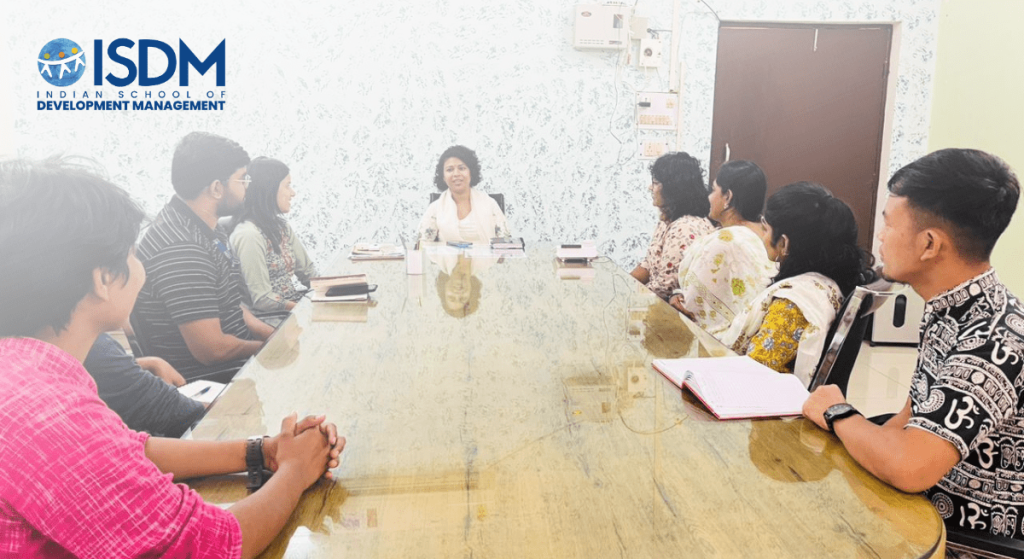As a social sector professional, I’ve often found myself in a conundrum about a relatively simple but critical question: “Are we truly creating lasting change in society, or are we just busy delivering activities?” The stark reality is that in this complex and resource-constrained development sector, having good intentions alone isn’t enough. We’re constantly requested to show and produce real data-driven results—to move beyond reports of activities and demonstrate measurable impact on the ground.
That’s why I have always advocated that Results-Based Program Management (RBPM) is not just a helpful tool—it can be a game-changer for the sector. RBPM produces a strategic, outcomes-driven approach that ensures every resource, activity, and partnership is aligned with the change we seek to create.
Why traditional approaches no longer work
I’ve seen many programs focus primarily on processes—whether it’s delivering workshops, distributing resources, or conducting training. While these actions have their importance, they fall short in providing answers to the question funders, communities, and partners care about most: What impact did this have?
Without a systematic results-based approach, we face several challenges:
- Struggling to justify funding and demonstrate return on investment.
- Missing opportunities to course-correct when programs aren’t delivering the intended outcomes.
- Finding it difficult to scale what works and build trust with stakeholders who expect transparency, accountability, and evidence.
In a sector where resources are limited and needs are vast, we cannot sustain by operating this way.
How RBPM transforms our work
What I appreciate most about Results-Based Program Management is its ability to shift our focus from activities to outcomes. Here’s what it brings to the table for professionals working in the social sector:
- Clarity of purpose
RBPM defines success in measurable outcomes. When we start with the end-goal in mind, we create alignment across teams, and a shared sense of direction evolves, focusing on the bigger picture. - Evidence-based decision making
RBPM empowers us to make thoughtful decisions by embedding regular data collection and monitoring into the programs. Instead of relying on gut feelings or anecdotal stories, RBPM makes strategic choices based on what the evidence provides. - Accountability and ownership
By mapping roles and responsibilities directly to expected results, RBPM promotes a culture of accountability. We get a clear picture of what we are working toward and how our efforts contribute to the broader impact. - Stronger stakeholder confidence
Donors, funders, and partners want us to show progress. With RBPM, we get a clear and transparent framework to communicate impact, which helps us build trust, secure funding, and scale what works. - Adaptability and learning
RBPM encourages continuous learning and adaptive management. In our dynamic sector, this is invaluable—it allows us to respond to evolving needs and challenges without losing sight of our goals.
Why this matters in India’s Development Sector
In India’s diverse and complex development landscape, where resources are scarce and the challenges vast, RBPM provides a practical and robust way forward. Whether we’re working in education, health, livelihoods, or the environment, RBPM equips us as able program managers, CSR professionals, and development leaders to design and implement programs that deliver real, measurable results that genuinely improve lives.
It’s not about delivering services; it’s about enabling behaviour change and sustained community ownership. Whether it’s children attending school regularly, families adopting better hygiene practices, or farmers improving crop yields, RBPM keeps us focused on what really matters.
My final take
For social sector professionals, Results-Based Program Management is not optional—it’s essential. It’s the mindset shift we need to ensure that our work is truly transformative. RBPM assists us in scaling from “what we are doing to what the community is doing”—from data-driven outputs to measurable outcomes, from effort to long-lasting impact.
We must incorporate a methodical, results-driven approach into our work if we hope to build trust, acquire sustained funding, or bring about long-lasting social change. The development sector’s future lies with those who adopt a transformative mindset and approach to work.




